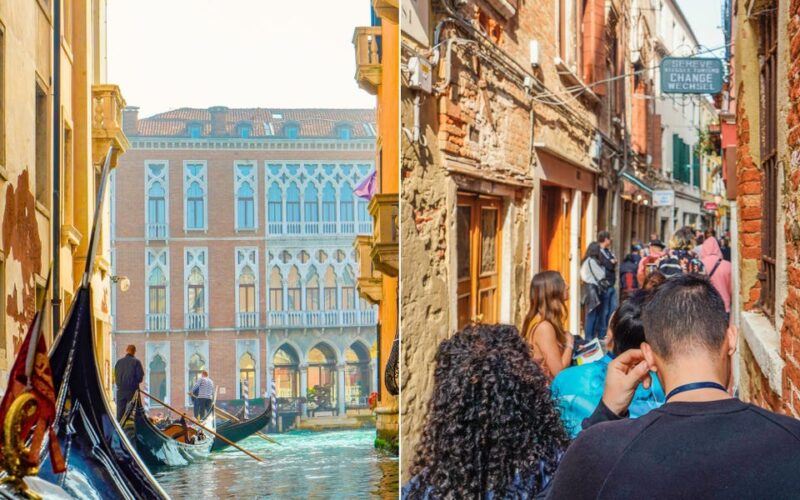Tourists in Venice stuff themselves through narrow bridges in mobs. They scramble through stopped groups of people posing for selfies in front of canals. They sacrifice having even an inch of personal space just to be in public.
And so do locals.
Overtourism plagues the historic city that wasn’t built to serve millions of people each year.
That’s why, in April, Venice introduced a tourist tax pilot program. Day-trippers could purchase tickets for 5 euros, or about $5.40, online or at booths at the city’s entry points. Fines for not registering ranged between 50 and 300 euros, or about $54 to $324.
The trial fee, enacted on 29 peak days between April 25 and July 14, was meant to deter tourists rather than raise money.
But not everyone thought it was a good idea. Many locals thought the fee went against basic travel freedoms and was too low to deter tourists, and 500 people protested the tax on day one.
Marco Secchi/Getty Images
“The ticket is a failure, as demonstrated by city data,” Venice city council member Giovanni Andrea Martini told the Associated Press in July.
According to Martini, Venice saw roughly 75,000 visitors daily for the first 11 days of the tax pilot program — 10,000 more daily than during three major holidays in 2023. By the end of the trial run, Venice raised 2 million euros, or about $2.2 million, in tourist taxes.
A cap on tourist groups
After the tax pilot program ended, Venice enacted another rule to mitigate overtourism — setting a 25-person cap on tourist groups, Reuters reported.
Beginning Thursday, Venice tourists who travel in groups of 26 or more may face a fine of 25 to 500 euros, or about $27 to $541. The cap does not apply to children aged 2 and under or those traveling for education purposes, such as a school field trip.
The government also banned loudspeakers for group tours to avoid disrupting other pedestrians.
In addition to the city center, the new rules apply to three nearby islands — Burano, Murano, and Torcello.
From Venice to other hot spots like Amsterdam and Barcelona, overtourism seems to be getting worse this year as locals protest visitors and governments block views at popular sites.
Travelers can help mitigate the issue by visiting lesser-known countries that actually want tourists.
Source link
lol

